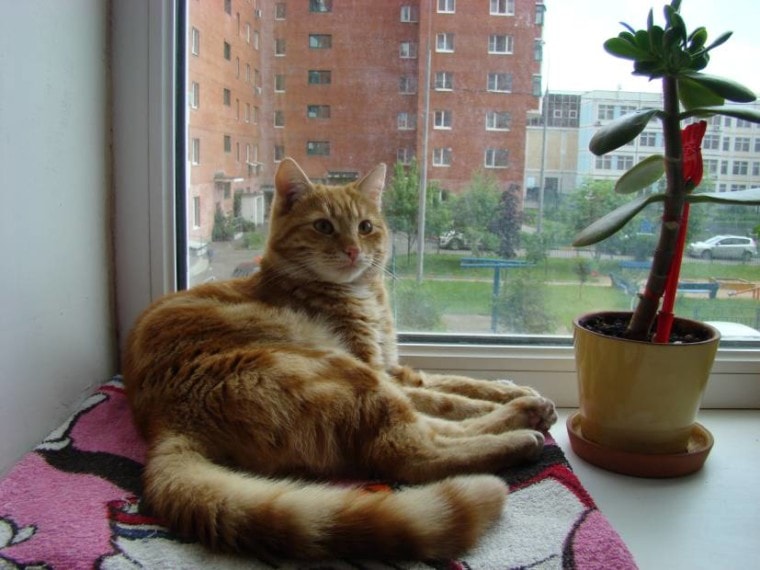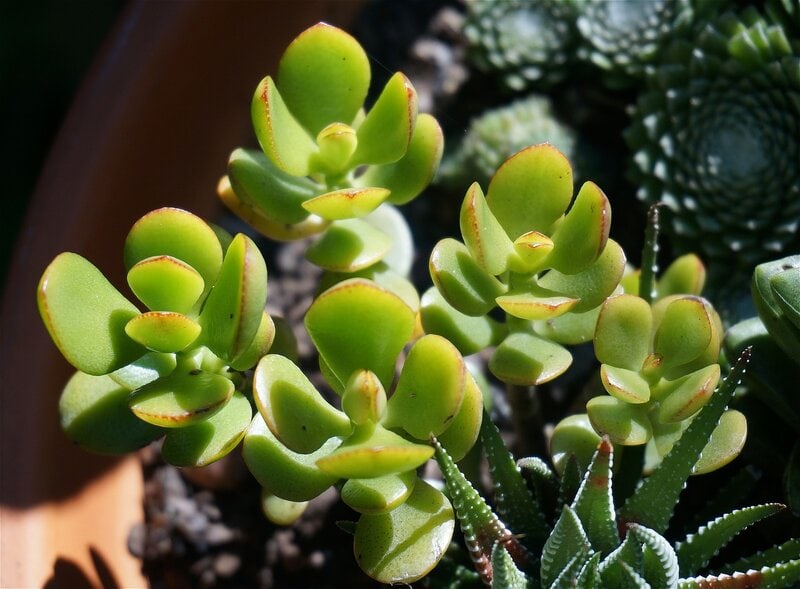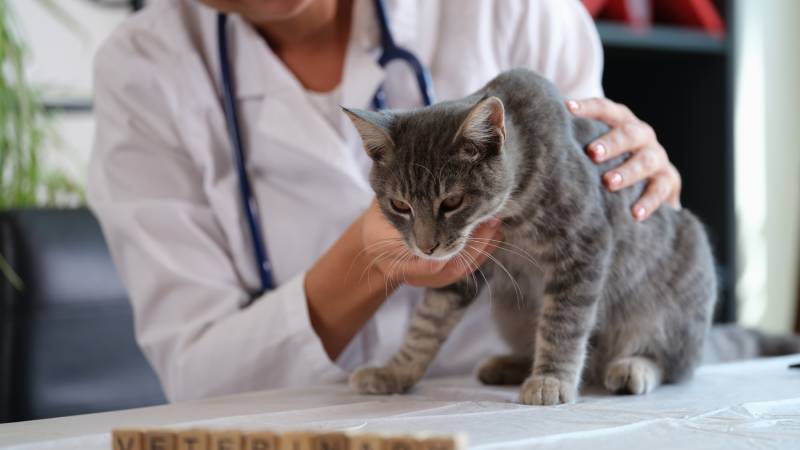
Keeping houseplants in your home provides many benefits, including cleaner air and enhanced beauty. However, if you’re both a plant parent and a pet parent, you’ll need to take extra care when choosing greenery for your living space. This is especially true if you own one or more cats, which are more prone to chewing on houseplants than dogs.
Jade plants are beautiful and easy to grow, but are they toxic to cats? Yes, all parts of the jade plant are toxic to cats and can cause serious medical issues if your kitty chews or ingests them. You should consider other, safer succulents for your home. Here, we go over those alternatives, along with the signs of jade plant poisoning in cats and what to do if you’re concerned that your cat may be suffering from it.
 How to Identify a Jade Plant
How to Identify a Jade Plant
Jade plants (Crassula species) are succulents, a type of plant that’s native to dry or desert regions and adapted to store their own water. These plants are popular because they are generally hardy and easy to care for. Jade plants are among the most commonly grown succulents. There are several different varieties of jade plants, all of which are toxic to cats.
The jade plant can grow up to 5 feet tall and often looks like a small tree. It has round or oval leaves, which are either dark green, blue-gray, or lined with red, depending on the particular species. Star-shaped pink and white flowers are another way to identify a jade plant.
When shopping for jade plants, be aware that they are sometimes referred to by different names. The friendship plant, the lucky plant, the money plant, the silver dollar plant, and the rubber plant are all possible names that are used for the jade plant. Don’t be confused by this and accidentally bring a jade plant home to your cat.

Signs of Jade Plant Poisoning in Cats
Now that you know how to identify a jade plant, you can help your cat avoid poisoning by not buying one. However, sometimes your cat may come into contact with a jade plant outdoors or by accident when spending time at someone else’s house. In those cases, you’ll want to know the common signs of jade plant poisoning.
If you see signs of chewing on the jade plant, chances are that your cat is the culprit. This may be the first sign of a problem.
What to Do If Your Cat Chews On or Eats a Jade Plant
If you see signs that your cat has been chewing a jade plant or you notice any of the signs, don’t wait to get your cat treated. Get your cat to a veterinarian as soon as possible. If you’re able, bring a sample of the jade plant with you so the vet can confirm the poisoning and come up with the proper treatment plan.
There’s no specific antidote for jade plant poisoning. Your vet will typically provide supportive care such as intravenous fluids, medications to treat vomiting or diarrhea, and heart rate monitoring. Without treatment, jade plant poisoning can have serious consequences to your cat; however, it is rarely deadly. Don’t try to wait it out at home and hope for the best.

Succulents That Are Safe for Cats
Succulent lovers can take heart that while jade plants may be toxic, several other safe options do exist.
It’s important to remember that even plants considered safe or non-toxic can still be irritating if your cat chews or eats them. For the safety of both the plant and the cat, discourage your kitty from chewing on your greenery, or keep the plants in a room away from the cat.
 Summary
Summary
While it can take a bit of vigilance, keeping cats and houseplants in the same home is certainly possible. With so many different plants available, you can find non-toxic options of all types and avoid toxic choices like the jade plant. Before you bring home any new plant, check with your veterinarian or consult the ASPCA’s list of toxic and non-toxic plants to make sure it’s safe for your cat.
Featured Image Credit: Tatiana Belkina, Shutterstock


 How to Identify a Jade Plant
How to Identify a Jade Plant



